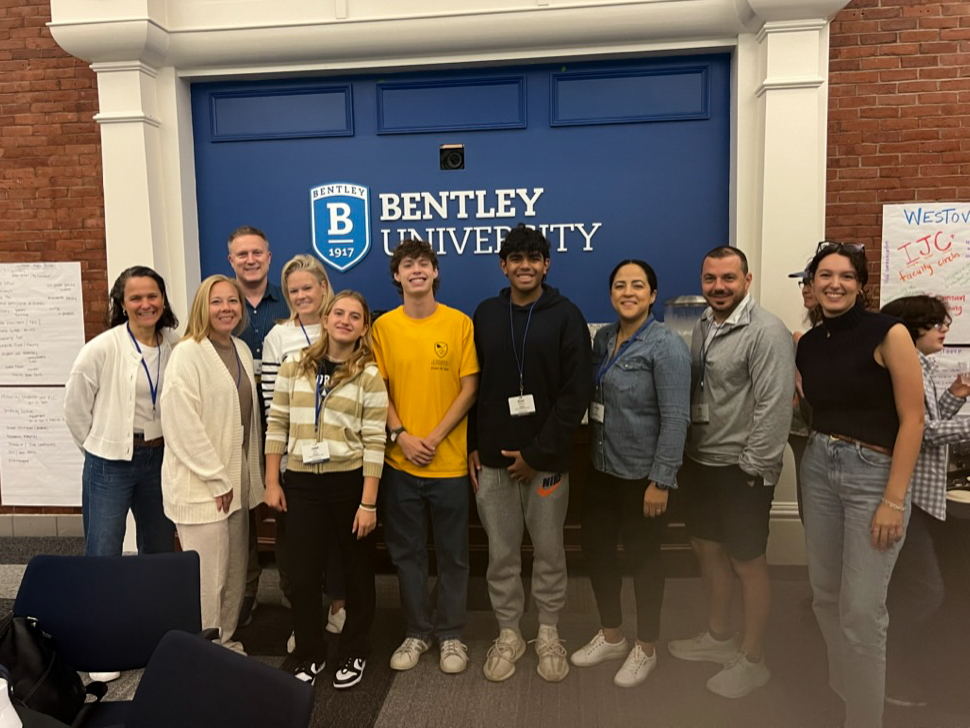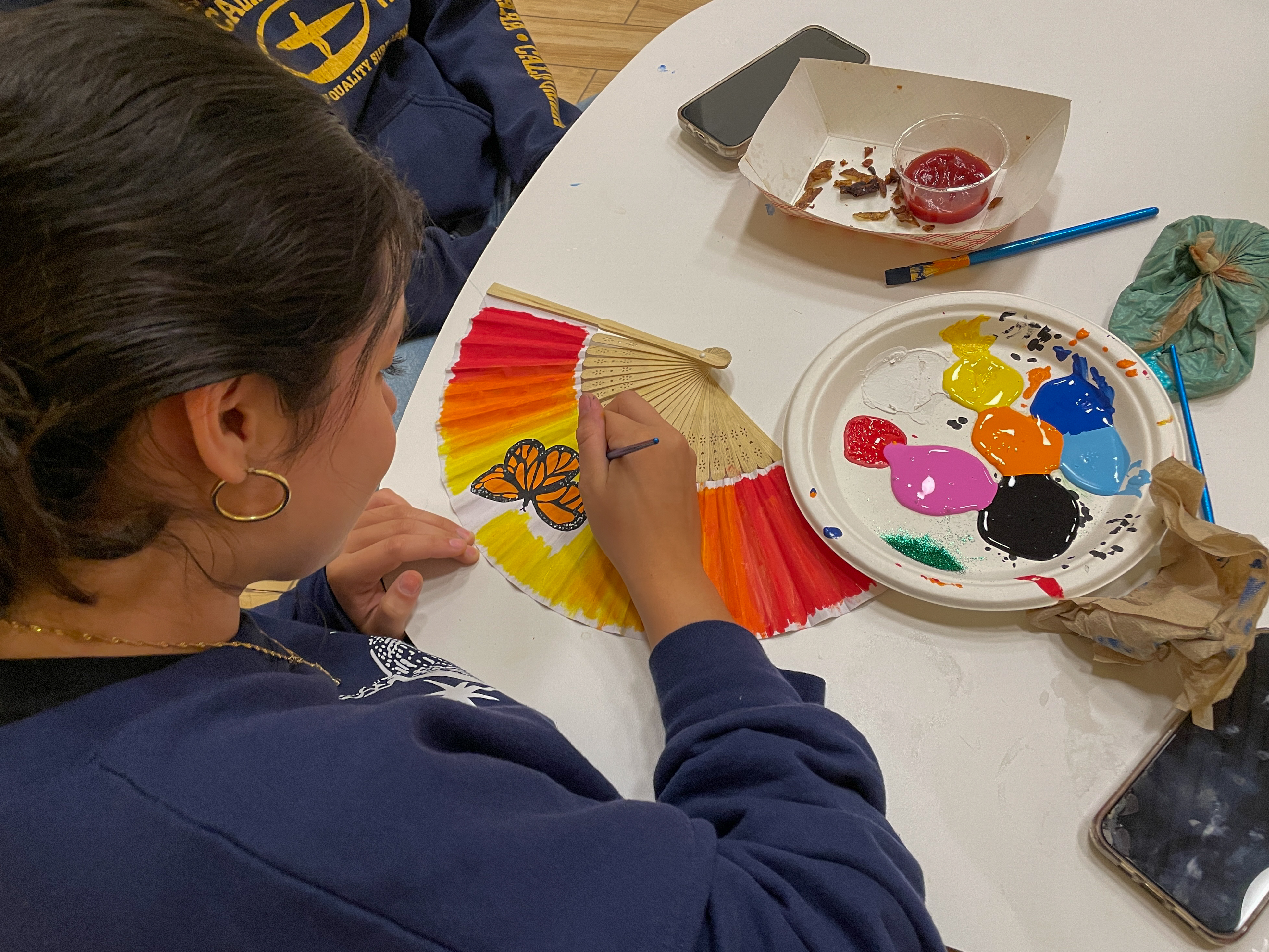While most students relaxed into long weekend on February 2, the Choate Robotics Team was preparing for the annual Choate Robotics Tournament. This year’s tournament was the second that Choate has hosted. The competition was held in the Worthington Johnson Athletic Center, where 49 high school teams, including nine Choate teams, competed for a chance to advance to the Southern New England Regional Tournament.
Mr. Kyle Di Tieri and Mr. Andrew Murgio, the coaches of the Robotics Team, organized the logistics for the event. The coaches coordinated with the event partners and VEX — the robotics league Choate competes in — to ensure that the tournament ran smoothly. “We dealt with all the teams that registered, had to get all the volunteers, lined up the judges, and lined up the other team coaches,” said Mr. Murgio. SAGE, Choate’s dining service, provided meals for the competing teams and students who volunteered and earned community service hours.
However, it was the students themselves who were responsible for the bulk of the preparation. Building robots to compete in the tournament was no easy feat, given the strict criteria established by VEX.
VEX tournaments focus around a game where teams play against each other and score points. This year’s game is called In the Zone, which is played on a 12’ x 12’ square field. The red and blue sides, both consisting of two allied teams, compete in matches with multiple stages. First, there is a 15-second autonomous period, “during which robots operate and react only to sensor inputs and to commands pre-programmed by the students into the robot control system,” according to the VEX Game Manual. Followed by the autonomous period is 1 minute and 45 seconds of driver-controlled play. Participants earn points by stacking cones on goals, scoring mobile goals in goal zones, stacking cones on top of each other, and by parking their robots at their designated spots by the end of the match. The difficulty of the goal determines the number of points a team receives.
As co-captains of Choate’s 6106 A team, Nandini Erodula ’18 and Elise Hummel ’18 led the team through the first qualifying rounds of the tournament. There are two sections to the contest, one in the morning and the other in the afternoon. The morning session is for the qualifying matches, which rank the teams. “Team selection is completely random,” Hummel explained. “You’re paired up with another robot team, and you and your partner compete against another randomly selected alliance,” she continued. Based on a team’s performance in the morning, alliances between two teams are formed. Only the top eight teams choose their alliances for the elimination rounds, which take place during the afternoon. “That’s why the qualifications matches are so important, to allow you to be in a higher rank and choose your team pair.” said Erodula. Each alliance plays each other until two remain.
The number of competing teams gradually dwindles once the afternoon session begins. Alliance numbers change, with three teams composing the alliance instead of two. Teams have to win two out of three matches to advance, and every team has to compete at least once. By the end of the tournament, two of Choate’s teams progressed to the top ten, with 6106 A placing second and 6106 B placing seventh. Choate also placed in the top ten for the Skills section, mini-challenges where teams have 60 seconds to score as many points as they can. The skills tasks additionally test driver control and programming.
Yet, these were not the Robotics Team’s only accomplishments: Choate team 6106 A also won the Excellence Award: “the highest honor of the VEX Robotics competition,” elaborated Hummel. This award signifies that the team had a well-documented Engineering Notebook and was in the top ten of the tournament. “Our goal in this competition was to qualify for New Englands and through the Excellence Award, we accomplished that goal.” said Erodula.
In the future, the team hopes its accomplishments can propel them to the VEX Robotics Worlds Championship again. However, there are some new developments that may change the way Choate Robotics participates in tournaments, namely the Advanced Robotics Concentration (ARC) Program. ARC is one of the newest signature programs on campus, where selected students pursue an intense study of robotics. “The ARC program is going to change the way we compete,” said Mr. Murgio. ARC students will form the Robotics team, which is currently a student body club. Instead of competing in VEX tournaments, the ARC program will register for the FIRST Robotics Competition (FRC), a different robotics league. Mr. Murgio explained: “In order to raise ourselves to the FRC’s level of competition, we’re having this program. It’s going to be selective in terms of choosing the people who are going to be on the main team. We’re thinking of having some sort of JV team for students interested in competing but who are not part of the program.”
Regardless of which competitions Choate will compete in, it is, as Mr. Murgio concluded, “the team’s level of creativity and the expertise they’ve shown in building and designing the robots is evident to the community through our tournaments.”





